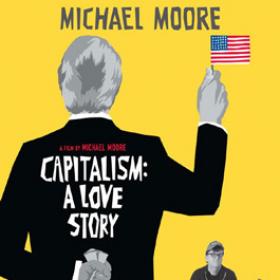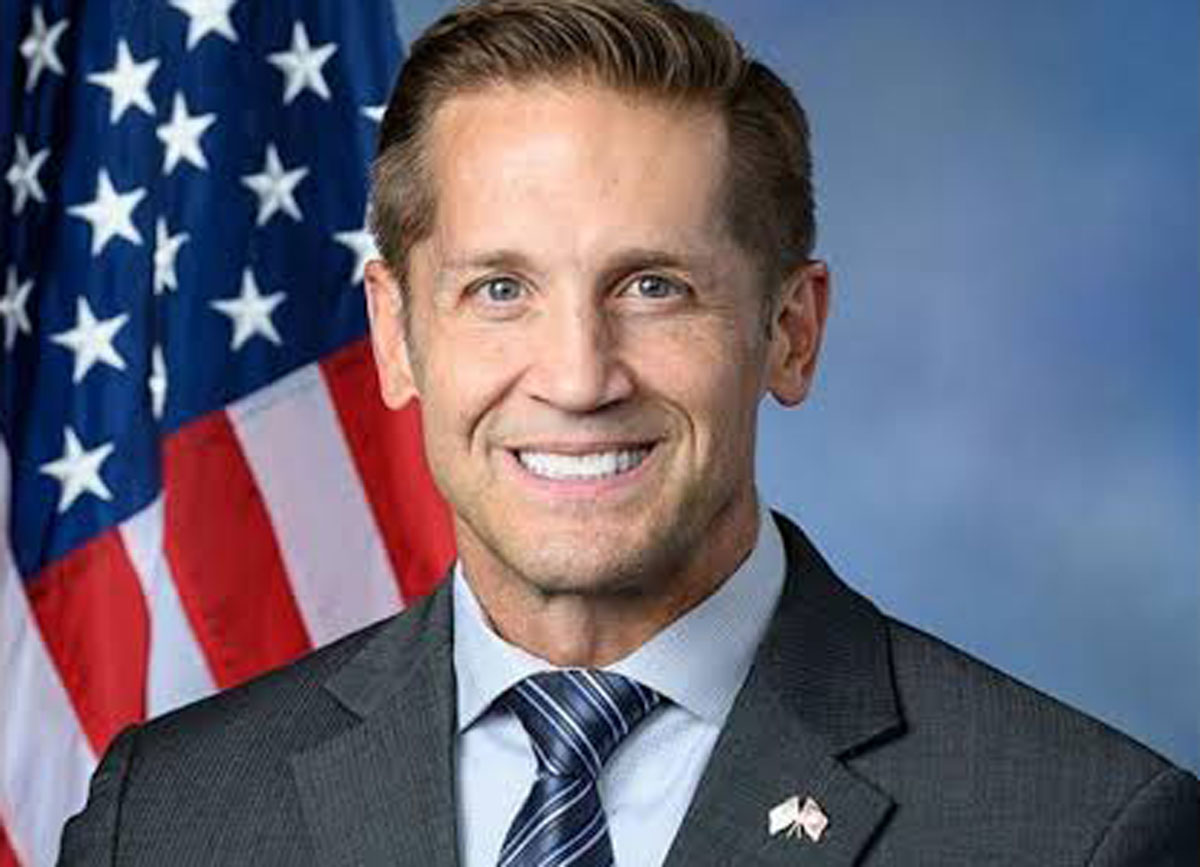Capitalism: A Love Story

3/5
Michael Moore enters the Age of Obama with the same old bag of tricks yet still somehow manages to continue to figure out ways to deploy them brilliantly, this time taking aim at our nation’s cult-like obsession with material wealth and the profit motive. The things that are wrong with Moore’s movies remain wrong here; cheap short cuts, a complete lack of a balanced argument, shameless self-aggrandizement, but one thing that remains is his ability to remain timely and relevant.
Critics have claimed that this gives his movies a shelf life. Sure, lots of great art is timeless, but that hardly means that every movie ever should be written with every conceivable generation- past, present and future- in mind. Citizen Kane still speaks to us today, but not in the same way that it did to audiences back in 1941. Another mistake Moore critics make is in getting too bogged down arguing against his version of history. Yes, every story has two sides and this is his. Barring any gross historical inaccuracies, he is entitled to it.
What is certainly worth applauding, whatever your politics, is the masterful way he presents his propaganda in ways that are persuasively hilarious and wildly entertaining. Moore finds lots of folks to point his finger at, but with George W. Bush out of office he had to look elsewhere for this film’s super villain. He settles on a worthy choice – the anti-union, anti-working class, anti-welfare Ronald Reagan.
Capitalism: A Love Story is Moore’s second masterpiece (Fahrenheit 9-11 being the first), and in it he provides a one-sided argument to the very complex issue of the economic system that we use in America. Being a Flint, Michigan native, Moore usually finds a way to zoom in on the automotive industry and use it as a stand-in for the economy at large. He is eternally enraged at the treatment auto workers have received in recent decades from corporations such as GM. And when one considers the number of American jobs lost compared to the skyrocketing pay of CEO’s (the average CEO makes 364 times more than the average workers, and those are workers who still have jobs according to CNN), it is easy to get on board with his line of thinking.
The most outrageous segment in the film, however, has nothing to do with GM or any other well-known corporation; but rather a little known company that goes by PA Child Care. This evil little enterprise, in an attempt to sell parents the option of sending their kids off to juvenile detention for benign offenses, accomplishes this goal by buying off a judge to the tune of $2.6 million with the understanding that he would drastically increase his number of convictions.
This led to children being locked up for unforgivable sins such as writing nasty things about an assistant principal on a MySpace page. For all the outrage conservatives have for Mao’s reeducation camps (rightfully so), it is disheartening to see them turn a blind eye when it money and greed that is sending innocent people into exile. In an attempt to be bipartisan Moore does take a few girly punches at current Treasury Secretary Timothy Geithner. Luckily he refuses to spare the rod when dealing with slimeball senator and faux presidential hopeful Christopher Dodd. If Dodd somehow manages to get re-elected in 2010 after the frying he takes here, then on some level this movie will have failed.
Although Moore spends much of the film working his audience into a blind rage, he does take a moment or two for some good old-fashioned uplift and those scenes are the most successful at wringing the tears. The most powerful image in the entire movie involves an African American woman who nearly breaks down mid-interview upon hearing that Obama had been elected president. These scenes far exceed Moore eviscerating those who exploit the poor while proclaiming that greed is good. Any goodwill Wal-Mart may have accrued for its stance on genetically modified produce in Food Inc. this summer is washed away as their practice of secretly taking out "Dead Peasant" insurance on their workers and then cashing in on it upon death is made public.
Citigroup also takes a pounding for their recent memo celebrating the new American plutocracy but warning against the dangers of our nefarious “One-person, one vote” system. Whether or not Moore actually lives up to his rhetoric in terms of his lifestyle is irrelevant. He would probably agree that capitalism has provided a pretty nice life for himself, but he is searching for a higher truth and one that focuses on the long term and human cost of our way of life. Moore is no longer the little guy (physically or financially) for sure, but the fight he is waging is effective, digestible and unquestionably on the side of those who have been left behind in by our extraordinary and fast-expanding wealth gap.
Director: Michael Moore
Runtime: 126 minutes
Distributor: Overture Films
Rated: R
RELATED ARTICLES
Get the most-revealing celebrity conversations with the uInterview podcast!





Leave a comment